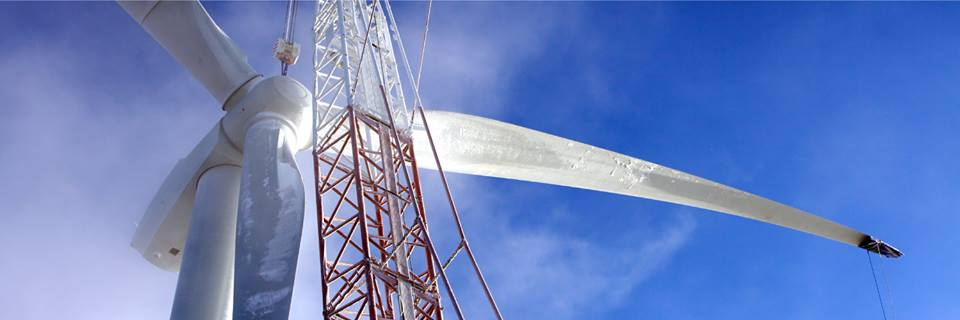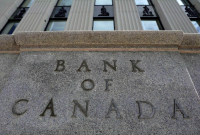Support strong Canadian climate journalism for 2025
With the Canadian financial sector struggling to adapt to climate change impacts and the financial implications of a phase-out of fossil fuels in the energy system, it is time for the Bank of Canada and our national financial regulators to step in. That is one of the suggestions of a report launched yesterday in London. The report calls for central banks to be given new mandates and a set of tools to proactively facilitate the transition to a low-carbon economy.
With an expert panel on sustainable finance now at work in Canada, the time is right to consider how our own central bank and national financial regulators can integrate climate-related risks into their operations and market oversight. The risks associated with climate change range from the near-term collapse of financing for coal, oil and gas, to longer-term risks linked to extreme weather patterns, increasingly severe flooding and forest fires, and sea-level rise. As former Bank of Canada governor Mark Carney described in his 2015 speech, “once climate change becomes a defining issue for financial stability, it may already be too late.” Before it is too late, Canada’s central banking community needs to address these risks.
Speaking at the report launch earlier this month, report author and Positive Money economist Rob Macquarie said: “the climate crisis and the low-carbon transition presents a fundamental challenge for finance, changing the context for central banking. Central banks underpin and oversee the financial and monetary system and have enormous resources at their disposal, so must do more to support the green transition.” Work on the green transition and climate-related financial risks is already happening around the world, from China to the Netherlands, as well as new research by US state reserve banks. Heading into to the G7 summit in June, Canada must show the world it can lead the way in the global financial transition away from fossil fuel financing and dangerous climate change. The new expert panel and more action by the Bank of Canada could be a promising start to raising Canada’s global profile in sustainable finance.
The Bank of Canada and climate risk: planning for a stable and prosperous future
The Bank of Canada and the federal financial regulator, the Office of the Superintendent of Financial Institutions (OSFI) could both take action to fulfil their purpose in the context of climate change. As the fiscal agent for the government of Canada, the Bank of Canada plays an essential role in determining financial flows across the economy. Its legislated purpose is "to promote the economic and financial welfare of Canada," and this should include acting on climate risk. In order to fulfil its mandate, the Bank of Canada could explain how its decision-making processes incorporate the macroeconomic impacts of the climate change. It could also broadcast its regulatory interest in climate risk and associated longer-term risks to economic stability in order to better inform capital markets participants and all other Canadians. Public debate and thought leadership from Bank of Canada economists and actuaries on climate risk would help inform national and provincial fiscal policy and would support more prudent investment decisions by our national pension funds.
OSFI, whose purpose is "to contribute to public confidence in the Canadian financial system" regulates and supervises more than 400 federally regulated banks and insurance companies and 1,200 pension plans. OSFI could follow the lead of financial regulators in California, and undertake a climate risk stress test of Canada’s largest financial players to determine where existing accounting and risk management systems may not be addressing climate change.
As the regulator of Canada’s largest pension funds, commercial banks, and insurance companies, OSFI leadership could transform the state of climate risk disclosure in Canada from the top down. This would improve transparency in our capital markets and would help to improve consumer confidence in the financial sector. International regulators have already examined these issues in our G7 peer countries - including in France, the United Kingdom and the United States. François Villeroy de Galhau, the head of the French central bank recently told a meeting of global regulators that European banks and insurers could be obliged to disclose climate-related risks and raised the possibility of penalties for investing in high carbon assets - this would be a world first in banking regulation. Sitting inside OSFI, the office of the chief actuary would be ideally suited to undertaking a robust and independent climate risk assessment at the largest financial institutions.
OSFI could also consider raising the capital requirements (making it more expensive) for banks to lend money to carbon-intensive companies and infrastructure projects. This would be in line with global regulatory interest in more public oversight over how banks lend money, and efforts by banking regulators to discourage lending to inefficient and high-risk segments of the fossil fuel industry. With Canada's G7 presidency in full swing, the time is right for the Bank of Canada and OSFI to share their own analysis on responsible monetary policy and financial regulation to support the low-carbon transition.






Comments
We must approach the weaning off of non renewables as Justin had promised in a proactive way. Let our financial institutions know we are paying attention to where they are investing customer's funds. If not for renewables it is up to us to be heard in an effective manner. Investors care about their returns.